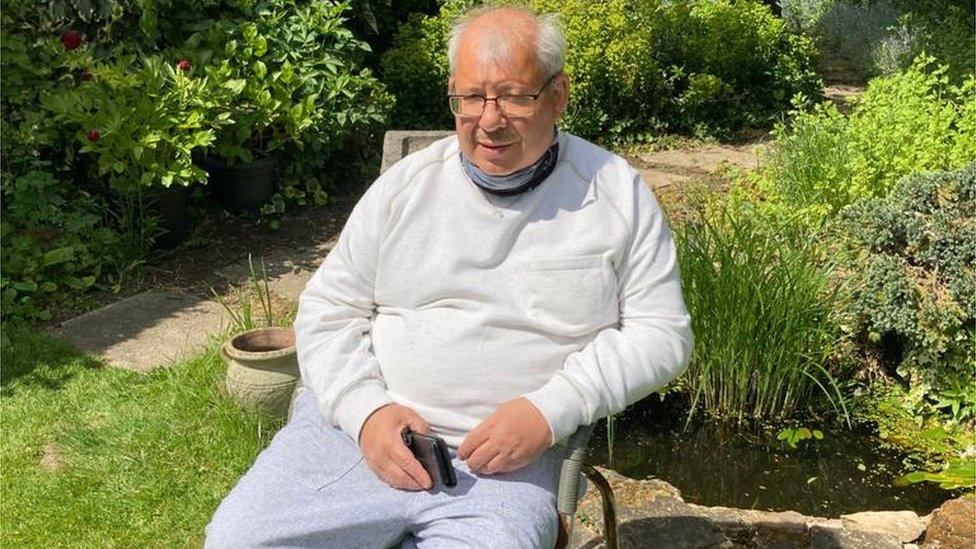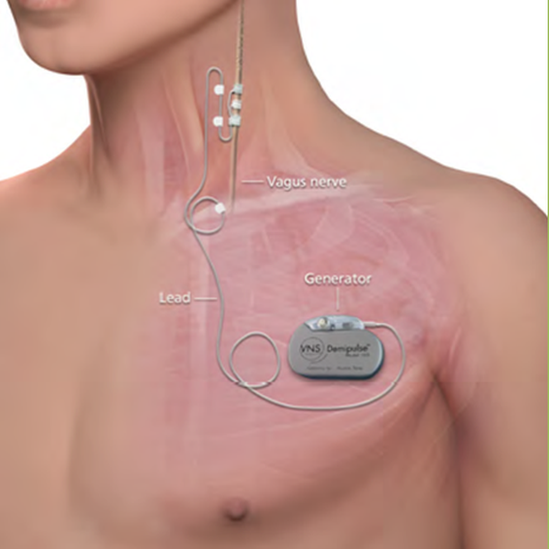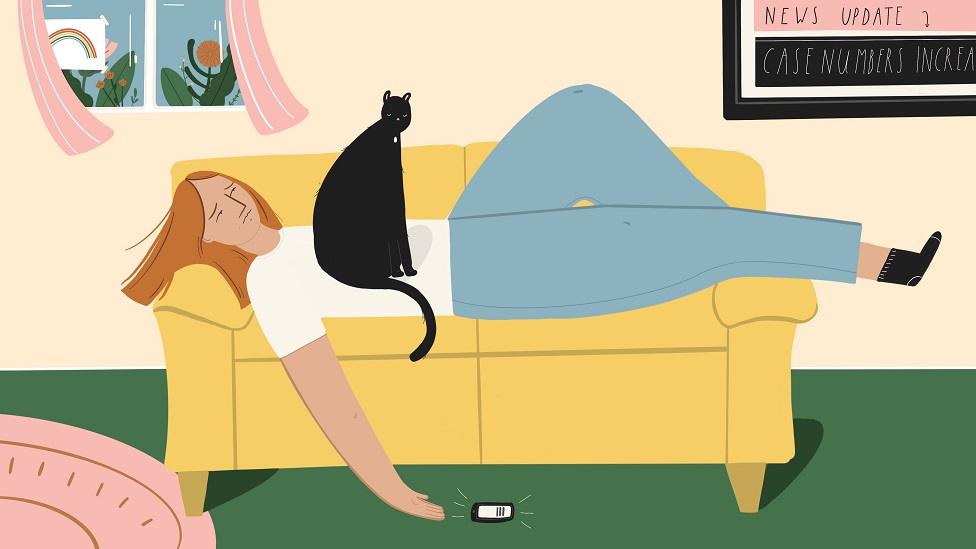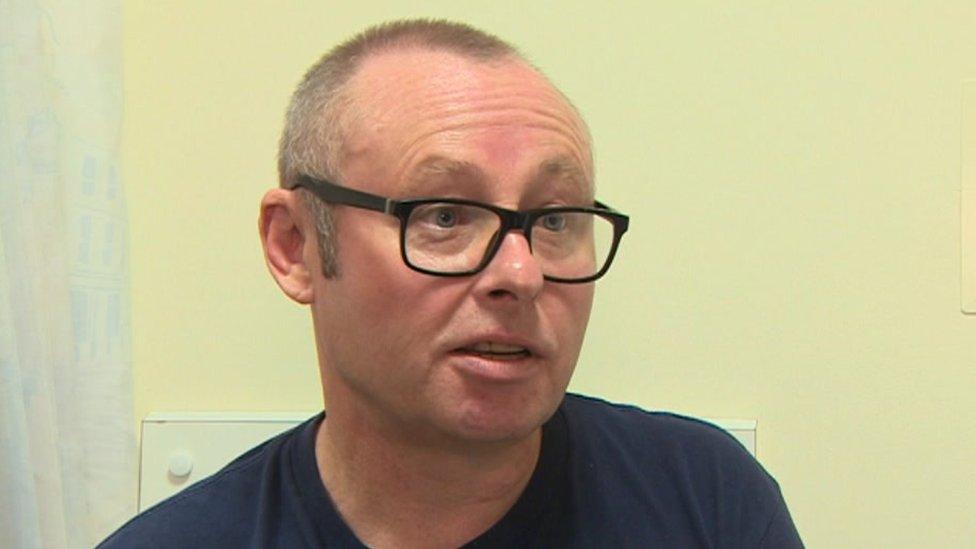Vagus nerve stimulation implant praised by depression patient
- Published

Johnny Spillane said he felt like he was returning to his "old self" since having the implant fitted
A man who suffered with depression and anxiety for 30 years believes an implant fitted into his chest has transformed his life.
Johnny Spillane said he had tried various medications and treatments since he was 25, but nothing worked.
The 56-year-old became the first East Midlands patient to be fitted with the device sending electrical pulses through his nerves to the brain.
He said within months he felt "phenomenally better".
Mr Spillane, from Groby, Leicestershire, said he had even "revelled in" the coronavirus pandemic and lockdown, which would have once caused people to worry about him.
"My depression and anxiety reached crisis point in 2013 when I took an overdose and attempted suicide," he said.
"For five years I didn't want to wake up in the morning... I didn't get off the sofa for two years and now I feel really well and able to help others who are struggling with having to stay at home during the pandemic.

Mr Spillane said he went abroad for the first time in six years in November
"I actually feel for once a bit normal.
"Everybody is feeling the strain and anxious about something at the moment. And that's how my life was every day."
Mr Spillane's marriage broke down seven years ago, he lost his job and home and was diagnosed with Parkinson's, which worsened his depression.
In September he was fitted with a Vagus Nerve Stimulation (VNS) implant and said he is starting to see a change.
"I get better and better as time goes on. I feel like I am virtually getting back to my old self," he added.
"It seems to have improved my mind and given me enthusiasm to do things I haven't done for years.
"I managed to go abroad or the first time in six years and I started to do some voluntary work."

The VNS device transmits pulses to the brain
The VNS device is usually used to treat epilepsy patients until doctors realised it also improved depression.
NICE (The National Institute for Health and Care Excellence) previously said evidence on the safety and success of the implant to treat depression was inadequate, and should only be used with special clinical consent.
Its current guidance - published in January 2009 - is being updated.
Leicestershire Partnership NHS Trust is one of a handful of trusts with a VNS service and is supported by health commissioners for Leicester, Leicestershire and Rutland.
Consultant psychiatrist Dr Girish Kunigiri, from the Bradgate Mental Health Unit in Leicester, said it can be an expensive and invasive procedure but felt Mr Spillane had tried all other alternatives.
"VNS not only results in better outcomes and quality of life for patients but we expect it to reduce mental health hospital admissions and reliance on community mental health services," said Dr Kunigiri.
"In the long term it will also mean patients will need to take less medication."

Follow BBC East Midlands on Facebook, external, Twitter, external, or Instagram, external. Send your story ideas to eastmidsnews@bbc.co.uk
- Published17 April 2020

- Published1 April 2020

- Published2 January 2020

- Published8 May 2019
